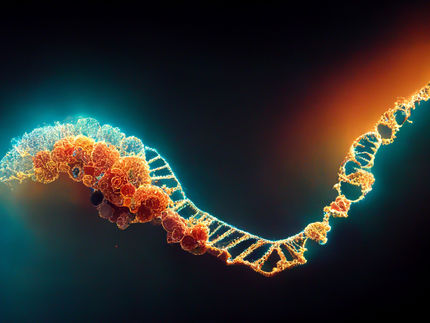Telomerase gene therapy slows ageing, improves health in mice
gene therapy allows older mice to live longer, healthier lives report researchers in a new study published in EMBO Molecular Medicine. Mice that received a single gene-therapy treatment to deliver telomerase to different cells in the body showed drastic improvements in health, fitness and longevity. Telomerase is an enzyme that helps to maintain the physical integrity of the ends of chromosomes.
“Gene therapy is typically thought of as a way to deliver genes into cells to correct genetic defects or diseases. However, if we consider that ageing is, at least in part, the consequence of defective gene function, gene therapy is also a valid strategy to delay ageing or to increase lifespan,” said Maria Blasco, one of the lead authors of the study and Director of the Spanish National Cancer Research Centre. “Our results show that telomerase gene therapy is not only a viable anti-ageing intervention but it also has remarkably beneficial effects on health and fitness without increasing the incidence of cancer.”
Telomeres are the caps of repetitive DNA nucleotide sequences that sit at the ends of chromosomes. They are gradually worn down each time a cell divides. Progressive erosion of telomeres eventually stops cells from dividing and leads to cell death.
The scientists used an adeno-associated virus vector to introduce the telomerase gene into the cells of adult mice. Telomerase helps restore longer telomeres by adding DNA back to the ends of chromosomes. “In addition to living longer, engineered mice had stronger bones, improved metabolic functions, better motor coordination and balance, as well as improved performance in object-recognition tests,” said Bruno Bernardes de Jesus, researcher at the Spanish National Cancer Research Centre and lead author of the study.
The mice that were used in the experiments typically live for approximately 150 weeks. One-year-old mice that were treated by gene therapy lived on average 24% longer; the average lifespan of two-year-old mice increased by 13%. By using older mice, the scientists were able to take advantage of the rejuvenating effects of the telomerase enzyme without the increased risk of cancer reported in earlier studies with younger animals.
In a commentary published in the same issue of EMBO Molecular Medicine, Utz Herbig, Assistant Professor at the New Jersey Medical School-University Hospital Cancer Center, remarked: “This work provides an important first proof-of-principle that telomerase gene therapy is a feasible and potentially safe approach to improve the healthy lifespan of older organisms. One of the next steps will be to investigate if similar results can be obtained for other mammals that live significantly longer than mice.”
Original publication
Other news from the department science
Most read news
More news from our other portals
See the theme worlds for related content
Topic world Gene therapy
Genetic diseases once considered untreatable are now at the center of innovative therapeutic approaches. Research and development of gene therapies in biotech and pharma aim to directly correct or replace defective or missing genes to combat disease at the molecular level. This revolutionary approach promises not only to treat symptoms, but to eliminate the cause of the disease itself.

Topic world Gene therapy
Genetic diseases once considered untreatable are now at the center of innovative therapeutic approaches. Research and development of gene therapies in biotech and pharma aim to directly correct or replace defective or missing genes to combat disease at the molecular level. This revolutionary approach promises not only to treat symptoms, but to eliminate the cause of the disease itself.






















































